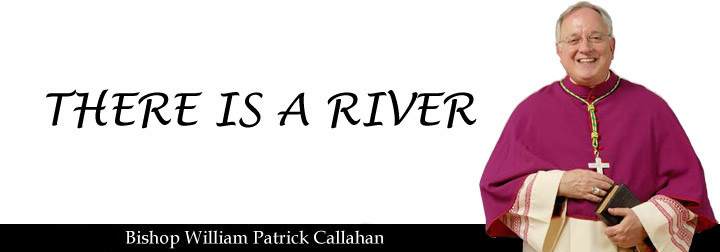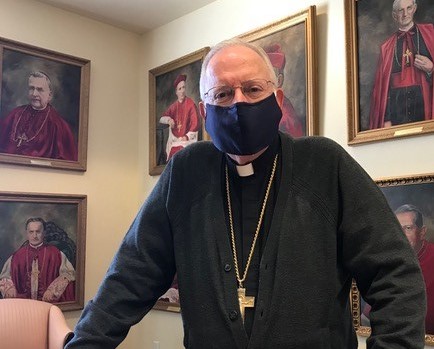O God, who have shown forth your salvation to all the ends of the earth, grant, we pray, that we may look forward in joy to the glorious Nativity of Christ.
Advent inspires us to “look anew” at our lives and prepare our hearts to welcome the Christ Child at Christmas.
As you start your Advent preparations, make time to pray with the scriptures. Whether you are able to attend Mass at your parish, are watching Mass at home or simply praying with the daily readings, listen to how the many prophecies of the Old Testament are fulfilled. We hear how the prophets foretold, how the shepherds responded and how Mary and Joseph welcomed the Christ child in Bethlehem.
This Advent, consider stepping into the season through the context of the Mass. On the first Sunday you will hear, “You, Lord, are our father, our redeemer you are named forever.” This prophecy, written several hundred years before the Resurrection of Jesus, identifies our Lord as father and redeemer. Facts we know today; but, for the people living before the birth of Christ, were kept as hope filled promises.
The second Sunday is about baptism. John the Baptist is heard saying “One mightier than I is coming after me. I am not worthy to stoop and loosen the thongs of his sandals. I have baptized you with water; he will baptize you with the Holy Spirit.” Consider your own baptism, the entry point into your Catholic Faith. Your baptism is a divine call to live out your life in the way God intended it. Through your baptism, you are called to give witness to the Resurrection.
For the third week, consider the role of the Holy Spirit in your life. The readings focus on the Spirit and the joy that follows when we conform our will to the will of God. At Mass, you will notice the priest’s vestments will be rose, to express our joy in the coming of Jesus our Savior. The responsorial psalm is taken from Mary’s Magnificat, in which she exclaims: “My soul proclaims the greatness of the Lord: my spirit rejoices in God my Savior.” As you ponder how your life is guided by the Holy Spirit, let the joy of
your own witness radiate to those around you.
Mary’s, “May it be done to me according to your word,” allows the world to receive the Savior and brings to completion our Advent journey. Use the forth Sunday of Advent to recommit yourself to doing the will of God. Whether in large or small matters, listening to God’s word and being docile to His promptings will bring lasting joy to you and those around you.
Join me as we start this new Church year, recommitting ourselves to listening to the Word of God and going out to tell the Good News. Pray for the vision and courage to use your gifts to build up the kingdom of God.
We wait with expectant hope for the coming of Christ. We are created to know, love, and serve God and to be happy with him in heaven. May this Advent season fill you with hope and awaken your desire for Heavenly Joy.

